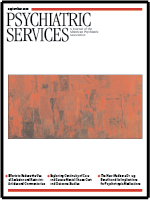Treating Health Anxiety: A Cognitive-Behavioral Approach
This is a well-written book—no surprise there, given that both authors are vastly published and experienced in the subject of anxiety disorders. The book starts with comprehensive descriptive chapters, moves on to the theoretical basis of development of such disorders, and then delves into different treatment strategies and modalities, assessments, and case formulation. It concludes with a chapter on maintaining treatment gains and an appendix that includes scales used throughout the text to quantify the progress patients can make in therapy as well as their corresponding scoring sheets.
The classification that the authors use to group all disorders that have health anxiety at their core, starting from disease phobias and ending with delusional disorders, appropriately identifies this book as a clinical reference to a wide area of psychiatric disorders. The authors facilitate the transition between theory and practice with their use of abundant examples of clinical presentations of cases that are relevant to the topic at hand.
When I reviewed this book I had been dealing with a case of a rape patient who three years later continues to believe she has HIV despite receiving negative tests every six months; the case is complicated by the patient's borderline IQ. I would have found it helpful if the authors had expanded their chapter on special populations that clearly need a different approach to their treatment.
Treating Health Anxiety: A Cognitive-Behavioral Approach certainly meets its stated objectives and will be a useful tool for those of us who invariably will face such cases in our professional life—the "difficult-to-treat patients"—and at the same time does not claim to have all the answers. It is an easy-to-read book that would make a valuable addition to any clinician's personal library.
Dr. Martini is a PGY-4 in the department of psychiatry at Wayne State University School of Medicine in Detroit, Michigan.



